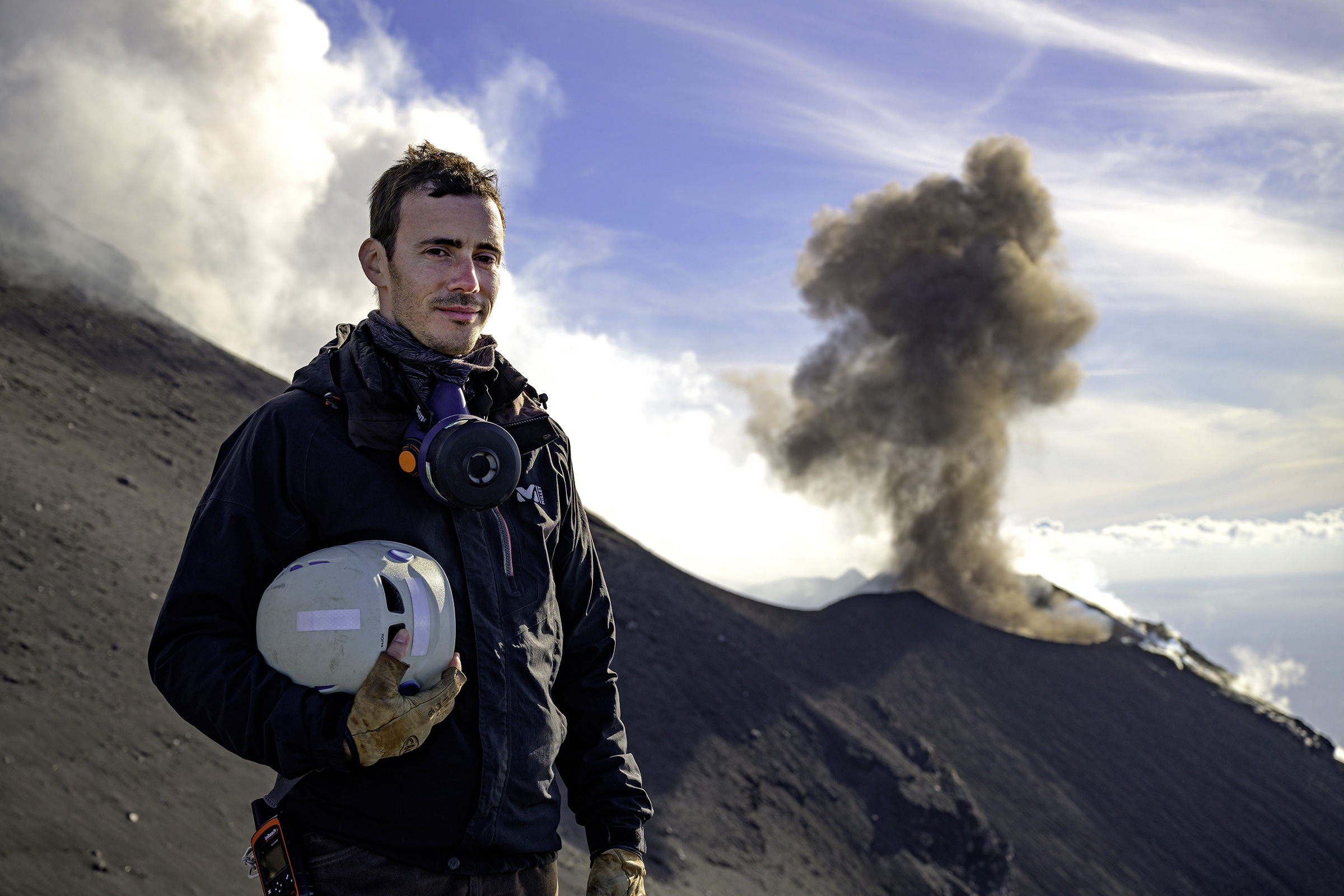As a teenager, Yves Moussallam traveled from the Paris suburbs to the Alps a few times a year to climb mountains. Now, though, he prefers volcanoes. “When you get to visit one that’s entering an eruption, the whole way up you can feel the ground shaking,” the 33-year-old French-Lebanese volcanologist says. “You’re excited but a little scared too. It’s exhilarating.”
Moussallam, who earned a Ph.D. in volcanology from the University of Cambridge in 2015, researches how volcanic activity influences the earth’s climate. Volcanoes emit gases like sulfur dioxide, which form aerosols that reflect the sun’s heat back out of the atmosphere, reducing the greenhouse effect. Scientists still lack data on how much of these gases volcanoes give off, compromising the scientific models essential to navigating the changing climate. Moussallam is helping fix that problem, traveling to remote volcanoes that have rarely been studied.

The pandemic put fieldwork on hold. But Moussallam has kept busy. Last year, he started setting up a lab at Columbia University, re-creating the high-pressure and high-temperature conditions in which magma forms inside the earth. And in a twist of fate, Moussallam may now be helping put an end to the expeditions he loves—he is working on a project using drones to take readings at the top of Ecuador’s El Reventador volcano. If it succeeds, the technique may be used at volcanoes all over the world. “A hike that takes me five hours, a drone can do safely in 10 minutes,” he says. It’s a promising development for science, but sad for researchers like him. “I feel like we’re the last generation of volcanologists that is going to be allowed to do these kinds of things.”
- Donald Trump Is TIME's 2024 Person of the Year
- Why We Chose Trump as Person of the Year
- Is Intermittent Fasting Good or Bad for You?
- The 100 Must-Read Books of 2024
- The 20 Best Christmas TV Episodes
- Column: If Optimism Feels Ridiculous Now, Try Hope
- The Future of Climate Action Is Trade Policy
- Merle Bombardieri Is Helping People Make the Baby Decision